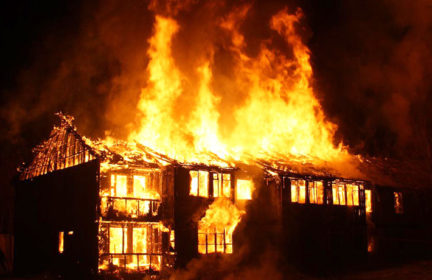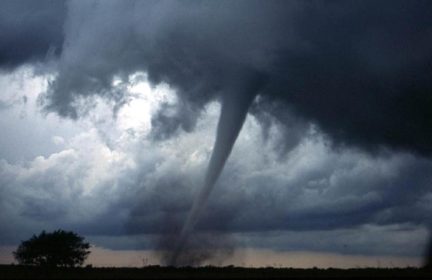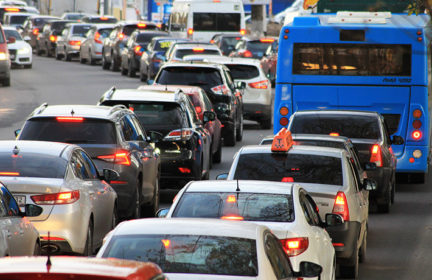The basic model my family uses for planning to Shelter in place vs Bug out
I’ve been a prepper for a long time and developed my plans before finding The Prepared. It feels good knowing that the plans we developed on our own mirror much of the officially recommended plans on this site. I’m thankful for this community and thought it might be helpful to share my personal version of our plans.
Lately I’ve been sleeping (somewhat) better, because I’m using the pandemic as a driver to review and update Go-Bags for the three adults living in our home. In addition to straight “physical survival” I’m giving a nod to Maslow and building in some “psychological comfort” as I work my way through this exercise. Staying grounded and sane can be critical during an emergency, and also go a long way toward helping you recover after one.
During an emergency our “Primary Plan” is to shelter-in-place in our home. We’re well equipped and prepared to stay in place for weeks. But we know we can’t count on that option, and we might have to leave in a hurry. So we have an “Alternate Plan” and that’s where the Go-Bags are essential. (We also have “Contingency” and “Survival” plans, but that discussion is for another time.)
Planning for an emergency is a vital step in stocking a Go-Bag that will fit your personal needs. I’ve found it’s a big plus to think about “what might happen? what am I preparing for?” When you’re planning, think of the ASSUMPTIONS you’re making (“I’ll be able to drive my car 30 miles to get out of the city and reach my brother’s home”) and CONTINGENCIES (“I might have to spend the next 12 hours in my car because the highway is blocked”).
To help you develop your personal plan (and your Go-Bags), I talk about my family and the scenarios that we’re working to prepare for, with a focus on the “Alternate Plan.” For the most part, I’m NOT going to tell you what to put in your bag; solid info on that subject is available on this site.
My goal in being prepared is to help reduce the impact of an emergency on my family, friends, and neighbors. What kind of emergency? Well, that’s where my “scenarios” help me out, and that’s the focus of this post.
Another thing to keep in mind is your location: mine is the Pacific Northwest. We’ve had a few earthquakes (and a volcano eruption) since I moved here so I know “seismic shift” is a risk for us; if you live in the Midwest you may focus your prepping on tornadoes; if you live near water you may need to prep for floods; and if you live in the SE USA naturally you’ll think about hurricanes.
Here are the possible situations that I think about when I’m prepping. They’re in descending order from “most likely and simplest to prepare for.” I live in a house that I own; in an apartment or a condo you may need different solutions.
Scenario #1: Shelter in place (“minor crisis”)
Our family typically experience one or more of these scenarios every year.
There are significant challenges in your region: a weather event or minor earthquake causes a power-outage or conditions that threaten the supply chain. After evaluating the situation, you conclude your best option is to stay home. You will need food, water, heat, meds, and a plan for self-defense. You may want to draw on your Go Bags to sustain you – or you may choose to keep them intact in case you need to GO.
A generator & fuel, a well-stocked pantry, cash in smaller denomination bills, a back-up source of heat in cooler months, and accessible tools will directly make a difference on your level of comfort and safety. Plan for at least two weeks. Try to keep a low profile while you shelter in place; anticipate that people who did NOT plan ahead will be in your neighborhood.
Scenario #2: Short time away from home with indoor shelter available (“significant crisis”)
We’ve only had a few of these scenarios in 40 years.
You need to leave your home because a minor earthquake makes it uninhabitable, or a local environmental issue pushes you out, or you need to go the ER and can’t be sure when you’ll return. You might shelter with a member of your family, or in a public shelter, or in a hospital.
This is a situation where you expect to travel in your own vehicle or walk a short distance to get a ride, spend most of your time INDOORS, be SECURE from harm, and have support from others including water, food, blankets, and a place to sleep. This is NOT about extended travel by foot or for outdoor-living survival situations. Wear comfortable clothing: scrub pants, long sleeve top, a zip-up fleece hoodie, and a baseball hat (to shield eyes).
Important: If communication channels are not working, leave a written message in a previously-agreed-to onsite secure location that will tell family/friends where you plan to go.
Keep in mind that when you are in public spaces, like a shelter, anything you have may become lost, contaminated, or taken from you. Firearms might not be allowed either.
For this scenario, I make sure that our go-bags have copies of all important documents; for all three of my family-members I carry scans on a thumb-drive AND hard-copy: medical info, family and friends contact info, driver’s license, passport, veteran’s ID and VA ID, Medicare card, a list of passwords, bank & insurance info – you take it from here.
We each also have earbuds (connect to phone for music), “quiet headphones” (earmuffs) to screen out noisy surroundings, and eyeshades (to screen out light – some places may have lights on both day and night, and basic PPE: nitrile gloves, N95 masks, and goggles.
Scenario #3: Extended time away from home (“recoverable emergency”)
Only once so far: a major wildfire complex came within miles of our family home, and we were put into a “mandatory evacuation” classification.
You need to leave your home and circumstances suggest that the infrastructure will NOT recover in a reasonable amount of time – say, two weeks. Think: pandemic, major earthquake or environmental disaster, and/or the prospect of civil disorder; the grid is down or at-risk. Assume you decide to go early in the cycle, the roads are drivable, and your destination is more distant. You do not know when you will return.
Scenario #4: You may never return home (“major disaster”)
In my opinion this is both the “least likely” scenario, and the most critical. The current SARS-CoV-2 pandemic exposed us all to a hint of what might be on the horizon. If this hits, your family’s life may depend on how well you prepared.
This is worst-case: imagine news reports of major displacements like Chernobyl, or war-time chaos and refugees. Take everything you believe you need to survive: food, water, clothing, firearms, AND high-value items including all your cash. Take any/all Go Bags. Load up your vehicle but don’t overload it; secure your load and do your best to keep a low profile as you implement your plan. Use your situational awareness skills. Stay safe: use extra caution if entering your house/apartment after an earthquake or other natural disaster!
If you read this far – thank you! I hope you found something that will help you prepare for the adventures life brings your way. Stay Safe, Stay Sane.
-
Comments (10)
-




